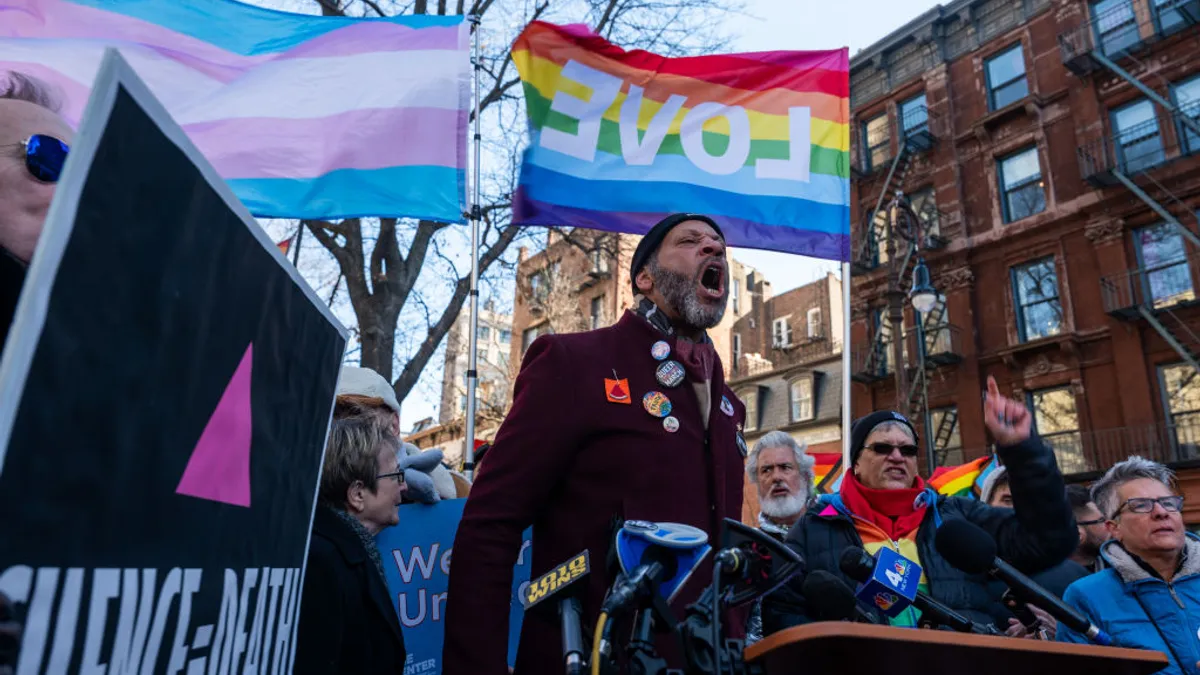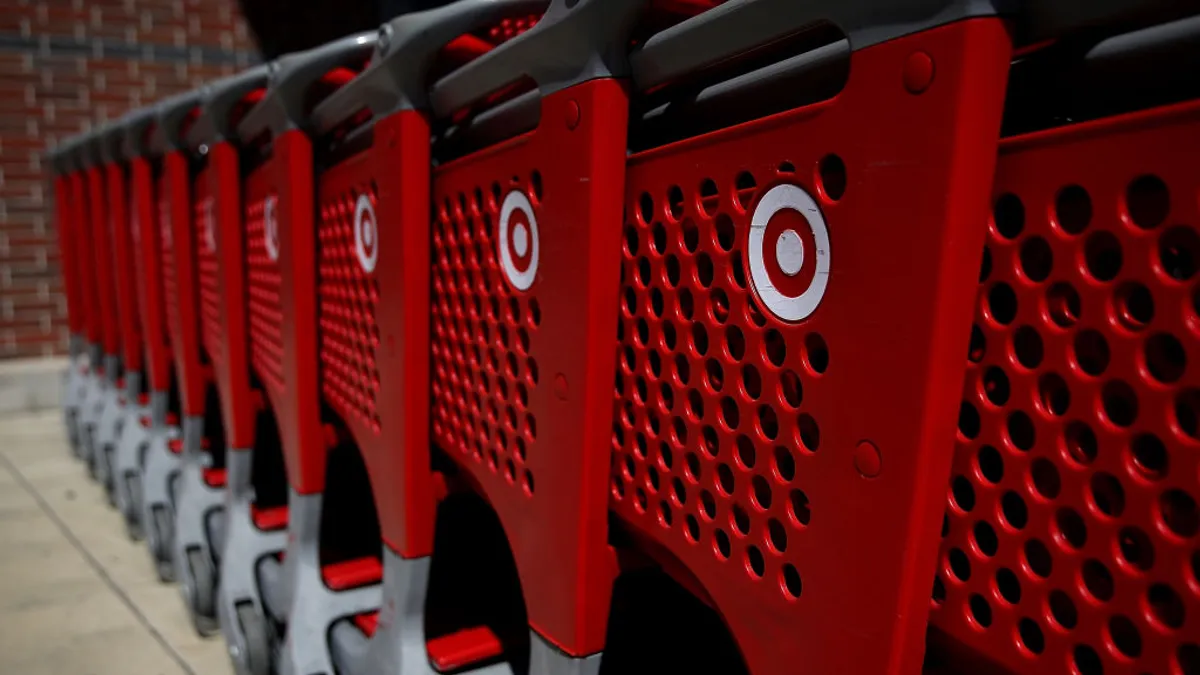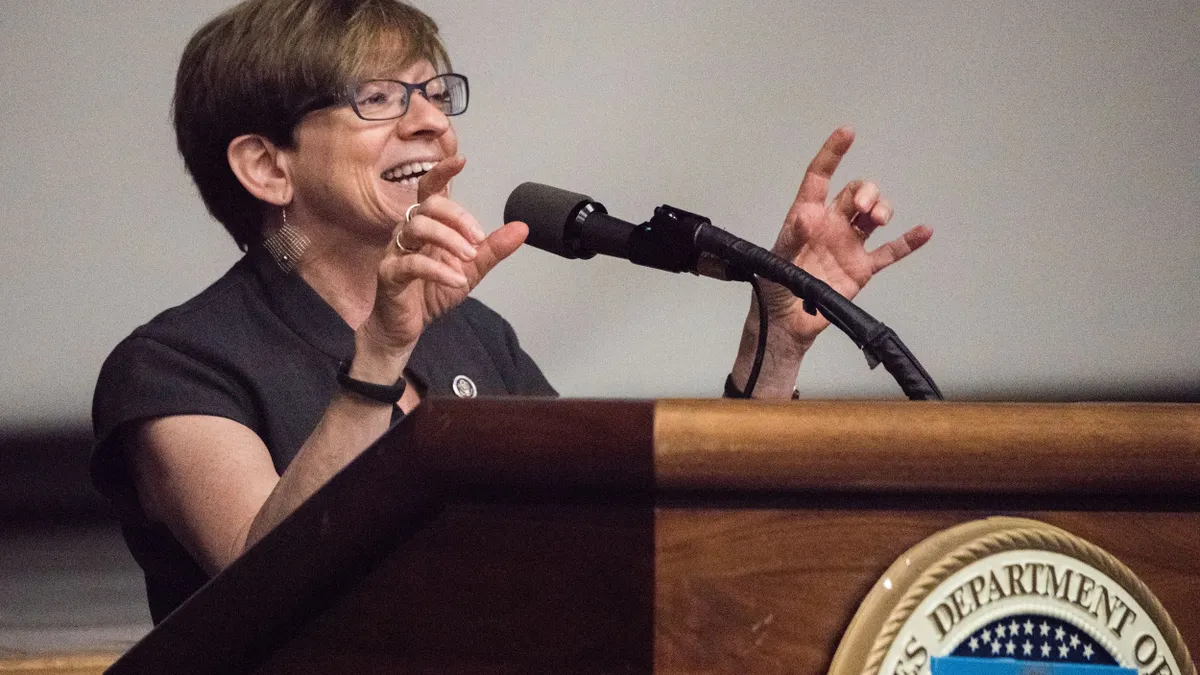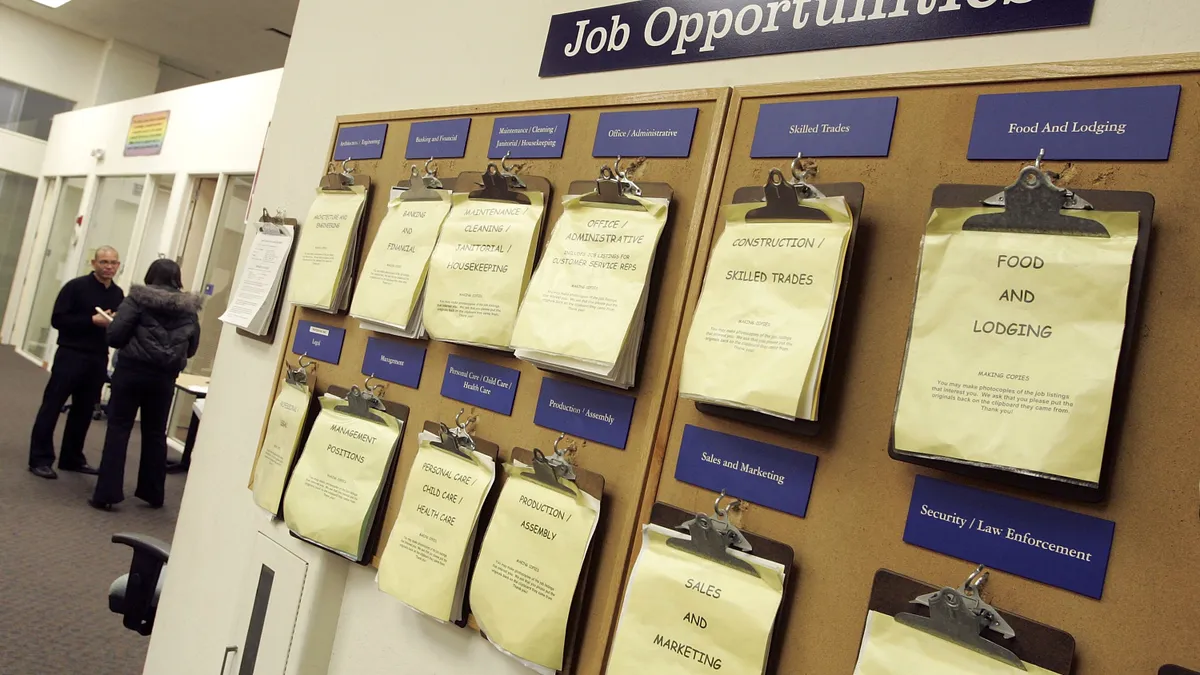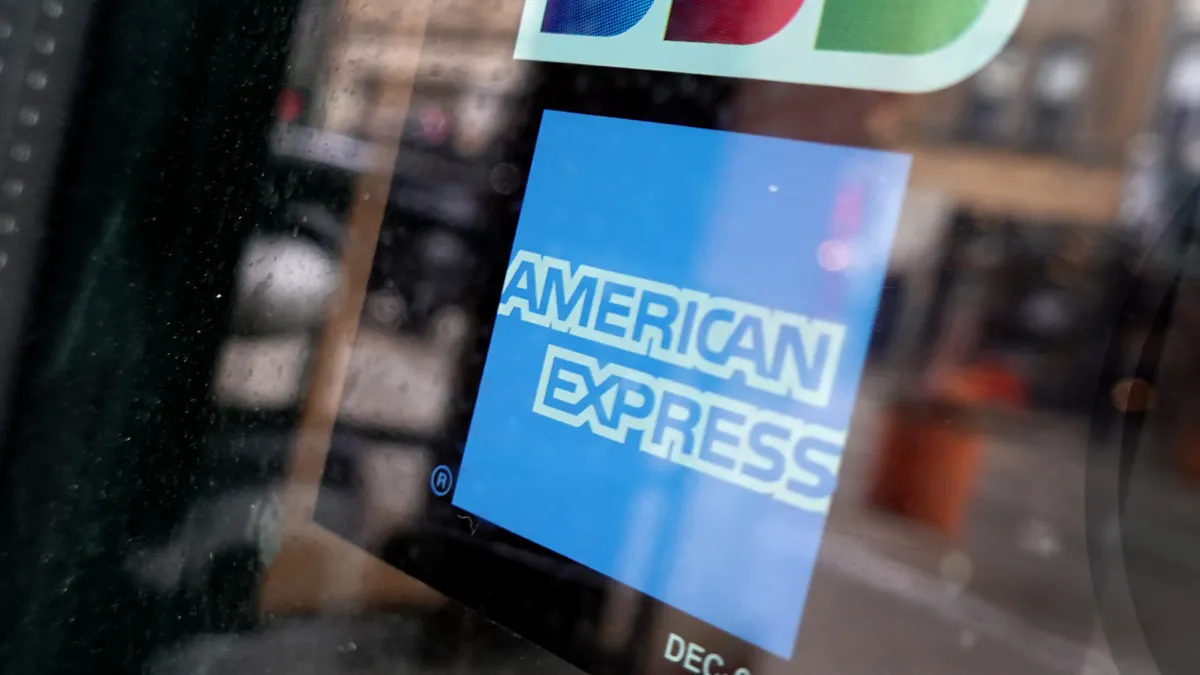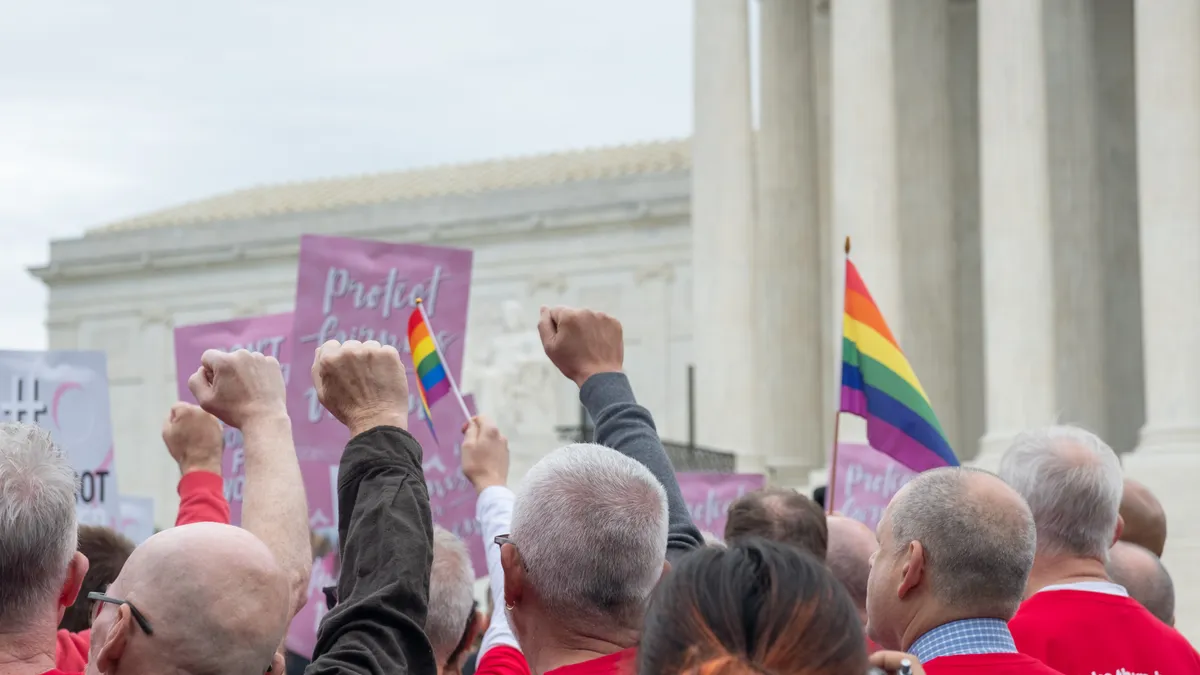Target has relaunched its “Black Beyond Measure” campaign for Black History Month 2025. But this isn’t an average February for Black History Month or Target.
To comply with President Donald Trump’s executive orders, federal agencies have snuffed out all “special observances” related to identity, from Holocaust Remembrance Day to Pride Month. The Department of Defense said that all identity months are now “dead.”
And Target has been in a continual tug-of-war regarding internal and external diversity, equity and inclusion. On Jan. 24, it announced the end of the bulk of its internal initiatives, amid an ongoing lawsuit concerning shareholder disclosure around its well-known Pride campaign.
Four days ago, as BHM 2025 kicked off, so did a nationwide boycott of Target, spearheaded by activists — especially in Minnesota, where Target is based.
Two organizing rights collectives, We Are Somebody and Until Freedom, have called for a monthlong boycott of the company and for consumers to buy directly from Black-owned brands instead. (They are responsible for the Boycott Target graphics that have been reposted countless times on Instagram.)
In an era where social media influencers like Robby Starbuck threaten to sic his base on “woke” brands, boycotts of companies that roll back DEI are a new development in the culture war.
“What I think is happening right now is consumers are experiencing cultural whiplash,” said Jasmin Hartmeier, senior director of PR at Chemistry Cultura, the Latino division of PR firm, Chemistry. Hartmeier, the daughter of Mexican immigrants, told HR Dive she is a key DEI counselor at the agency. She also recently attained her graduate degree from Johns Hopkins University, where she wrote her thesis on how organizations can “safeguard diversity, equity and inclusion during this retreat.”
Regarding cultural whiplash, she added, “People are getting their information a lot faster than they ever have with TikTok and social media. The chatter we’ve seen on social has been through the roof about who to boycott and who to no longer do business with. We’re getting more culturally attuned. We’re Googling and we’re doing the research on our own.”
Consumers are more interested and informed than ever
In that same vein, Costco has a halo in the court of public opinion due to the way it has stood firm on DEI values. Legendary civil rights leader Rev. Al Sharpton even led a “buy-in” at a Harlem Costco on Jan. 26, in a move that was lauded by the Black community and pro-Black outlets like Because of Them We Can. Earlier that week, in a Martin Luther King Jr. church service, Sharpton called for boycotts of companies renouncing DEI.
Regardless of where employers stand on the issue, it’s clear that collective economic action is transformative. On Feb. 3, when HR Dive spoke to Hartmeier, she acknowledged the poignance of speaking on A Day Without Immigrants.
She also previously called Bud Light’s 2023 partnership with trans influencer Dylan Mulvaney and the subsequent, damaging boycott of the brand a “tipping point.” Likewise, #BoycottTarget and #TargetBoycott aren’t purely reposts of the 2025 boycott graphics. Some of the featured posts that permeate the hashtags are memes and other expressions of ire around Target’s Pride campaign — the one at the center of the ongoing shareholder disclosure lawsuit.
How denouncing DEI can hurt an organization’s bottom line
The acronym alone seems like “some sort of trip wire in the United States,” Hartmeier said, suddenly “catching the attention of people like Robby Starbuck.”
“While some people are celebrating this big DEI retreat, I very much believe this is a pretty short-sighted decision, because our country has never been this diverse,” she said, adding that the population keeps evolving.
Companies aren’t considering the potential “aftermath of pulling back from DEI,” Hartmeier said.
Earlier, after the Human Rights Campaign became a focal point for company announcements, HRC published a report suggesting that LGBTQ+ Americans were prepared to not just leave anti-DEI employers but boycott them, too.
“Because we’re getting so diverse, there’s millions and millions of historically excluded people in this country from all different backgrounds. But if we’re handing the reins over to a really loud anti-woke, anti-DEI critic — who happens to have a large base on X or Twitter — versus millions of people who have wants and needs, I don’t think mathematically that makes sense,” she said.
How employers can navigate this volatile landscape
Similar to Hartmeier’s perception of DEI as a cultural trip wire, experts have previously characterized DEI as a “boogeyman” in conversations with HR Dive. Because the phrase has evolved connotatively, fears have sprung up about the implications of such initiatives.
In response, labor experts suggested that leaders define what these programs mean for their workforce. Similarly, Hartmeier brought up examples of DEI program rebranding to “respect and engagement programs.”
She also mentioned SHRM’s rebrand, where it dropped the “E.”
“I think they did it solely because there’s so much confusion around the word equity — not because they think that ‘D’ and ‘I’ aren’t incredible investments. But more so that people were just confused about the word,” she said. “Because in order to give equity, you have to take away from something to give to someone else. And I think that's where people were getting a little bit stuck in the mud.”
Echoing the sentiment of shareholder ESG researcher Meredith Benton, a piece of advice that Hartmeier and her team at Chemistry Cultura are giving clients is to think beyond this current moment.
“One of the things we’re saying is, ‘Think about just rebranding the storytelling. Keep doing the really smart, good, inclusive work, because it's necessary.’ It’s important we keep putting in the work,” Hartmeier said. “But can you just rebrand the storytelling, just for the time being, to play the long game?”








